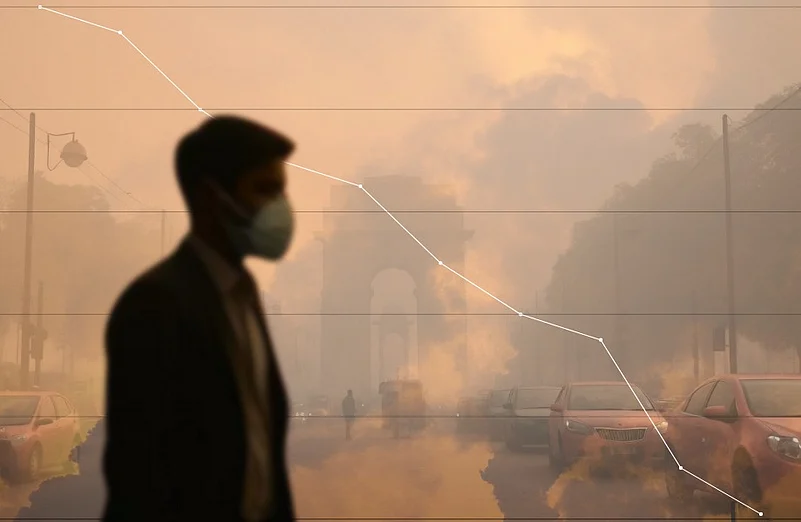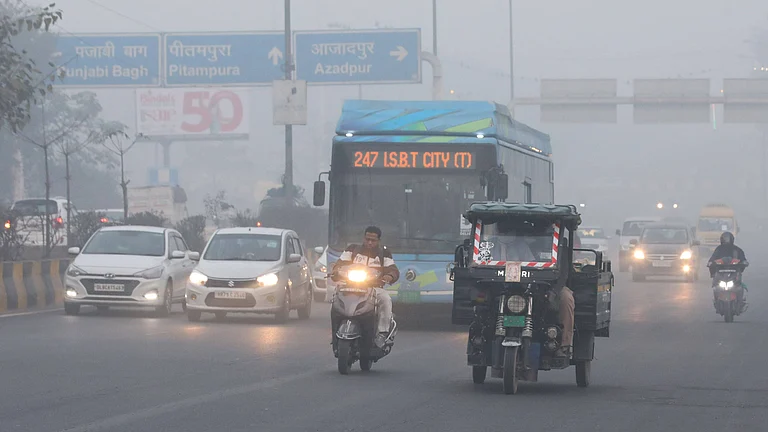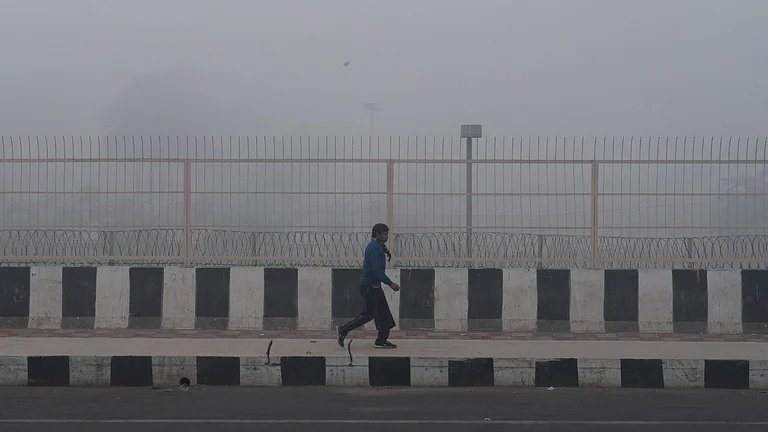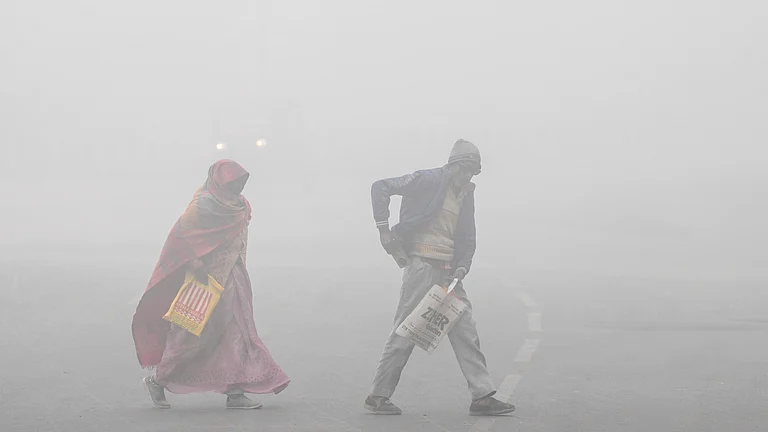Delhi’s AQI has become a constant source of discussion for everyone. As breathing the air becomes difficult, people are trying to find new routines. No morning walks, avoid physical commute, and more. With normal life hitting a standstill, start-ups are also finding it hard to navigate through the environment.
Just to give some context, today (November 19), the AQI that was reported was around 490 as of 7 am. The Central Pollution Control Board highlighted that in areas such as Alipur, Anand Vihar, Bawana, Narela, Pusa, and Sonia Vihar, the AQI touched 500. The AQI also breached 1,000 in the last few days. This is way above the World Health Organization's (WHO) limit, which says that AQI above 300 is hazardous for the health. Now, Delhi Minister Gopal Rai has asked the central government for artificial rain to make the situation better.
“We have been consulting several experts over how to remove the smog cover in Delhi. We believe that the time has come for artificial rain to remove this smog cover and provide relief to the people,” he reportedly said.
The capital of India is home to more than 6,500 start-ups. The States’ Startup Rankings 2019 conducted by the Department of Industrial Policy and Promotion, highlighted that Delhi is an ‘Emerging State’ in the ranking. Additionally, more than Rs 1.5 crore in funding has been provided to incubators to support the incubation services they provide to start-ups in Delhi, according to data from StartUpIndia.gov.in.
While all of it sounds perfect, an area of concern that has emerged amongst start-up founders has been the poor AQI prevailing in the state. Experts say that the worsening AQI in Delhi is impacting everyone, including start-ups, especially those that rely on in-person collaboration and client meetings.
Start-ups struggle with lean teams and tight resources
“For start-ups, which often operate with lean teams and tight resources, this adds significant strain. The focus for many shifts from innovation and growth to addressing immediate health concerns within their teams, inevitably delaying critical milestones and hampering overall efficiency,” said Ambika Sharma, founder and Chief Strategist, Pulp Strategy.
Echoing the same concern, Karan Mehta, Venture Principal, Green Frontier Capital, said that for start-ups, where every team member plays a critical role, such disruptions can stall progress. “Air pollution also discourages in-person meetings, events, or conferences, which are critical for networking and deal closures, especially for start-ups in the early stages,” added Mehta.
What is important to note here is that AQI worsening in Delhi is not a new thing. It’s an age-old phenomenon that is happening every year during the winter. A research paper published in The Lancet called Health and economic impact of air pollution in the states of India: the Global Burden of Disease Study 2019 says that air pollution is causing many deaths and health problems in India.
To add to it, there is also a large economic loss from reduced work productivity, which could slow down India's goal of becoming a $5 trillion economy by 2024, adds the report. Taking Delhi into consideration, the paper indicates that in 2019, Delhi had the highest economic loss per person from air pollution, followed by Haryana. The loss varied 5.4 times between different states. “This total loss of $36·8 billion (27·4–47·7) was 1·36% of India's gross domestic product (GDP),” it adds.
With the AQI taking a toll on an employee’s health, many are forced to take leaves. “Many employees are forced to take 1-3 days off due to health issues, while others are compelled to take over 5 days off, leading to a staggering 20-25% drop in productivity,” said Aditya Kandoi, founder & CEO, Redcliffe Labs.
Start-ups have also pointed out that Delhi’s AQI crisis is a wake-up call for all businesses in India, especially start-ups that thrive on agility. “This isn’t just a Delhi problem—it’s a reminder for startups across the country to future-proof their businesses against environmental risks,” added Kandoi.
With the pollution becoming hazardous every passing day, the Central Pollution Control Board (CPCB) implemented Stage IV of the Graded Response Action Plan of the Commission (GRAP). The measures under GRAP Stage-III include allowing employees to work from home, banning truck traffic from entering Delhi, and halting construction activities. It also applies to public infrastructure projects like highways, flyovers, and power lines.
Meanwhile, environmentalists Outlook Business spoke to point out that there’s a common narrative that nearby states, especially due to crop burning, are the main cause of Delhi’s pollution spikes. While that’s part of the issue, we must also focus on internal factors. Vehicular and industrial pollution are the largest contributors to the problem.
Shubhra Singh, executive director of The Nand and Jeet Khemka Foundation and The Nabha Foundation, has been working on issues pertaining to climate change for a long time. As per Singh, the rising level of AQI in Delhi is forcing several people to move out. “I've spoken to several individuals who have sold their properties in the NCR region and moved to smaller towns. People are beginning to realize that while bigger cities offer better healthcare facilities, the air quality is making them more sick,” Singh added. A 2023 survey by healthcare provider Pristyn Care, involving 4,000 participants, found that around 60 per cent of residents in Delhi and Mumbai are considering relocating to other cities.
So, is relocating an option for start-ups? Experts disagree. Delhi is a hub for investors, accelerators, and talent. Further, it offers unmatched access to opportunities critical for growth, add experts.
“Shifting to another town may disrupt existing networks and increase operational costs. Additionally, relocation would not necessarily solve the issue, as pollution is a pan-India concern in many urban areas,” said Kandoi.
However, some founders indicate that relocating to cities with better air quality could enhance their ability to attract employees who prioritize long-term health. “We hope it doesn’t take a mass migration of startups; that could weaken Delhi’s reputation as a start-up hub, prompting policymakers to address the crisis more aggressively,” said Mehta. With the AQI becoming severe and economic losses mounting, it becomes important to take urgent action regarding the same.
































